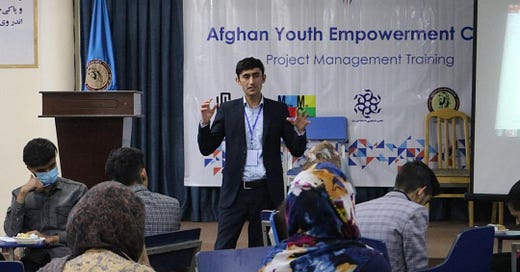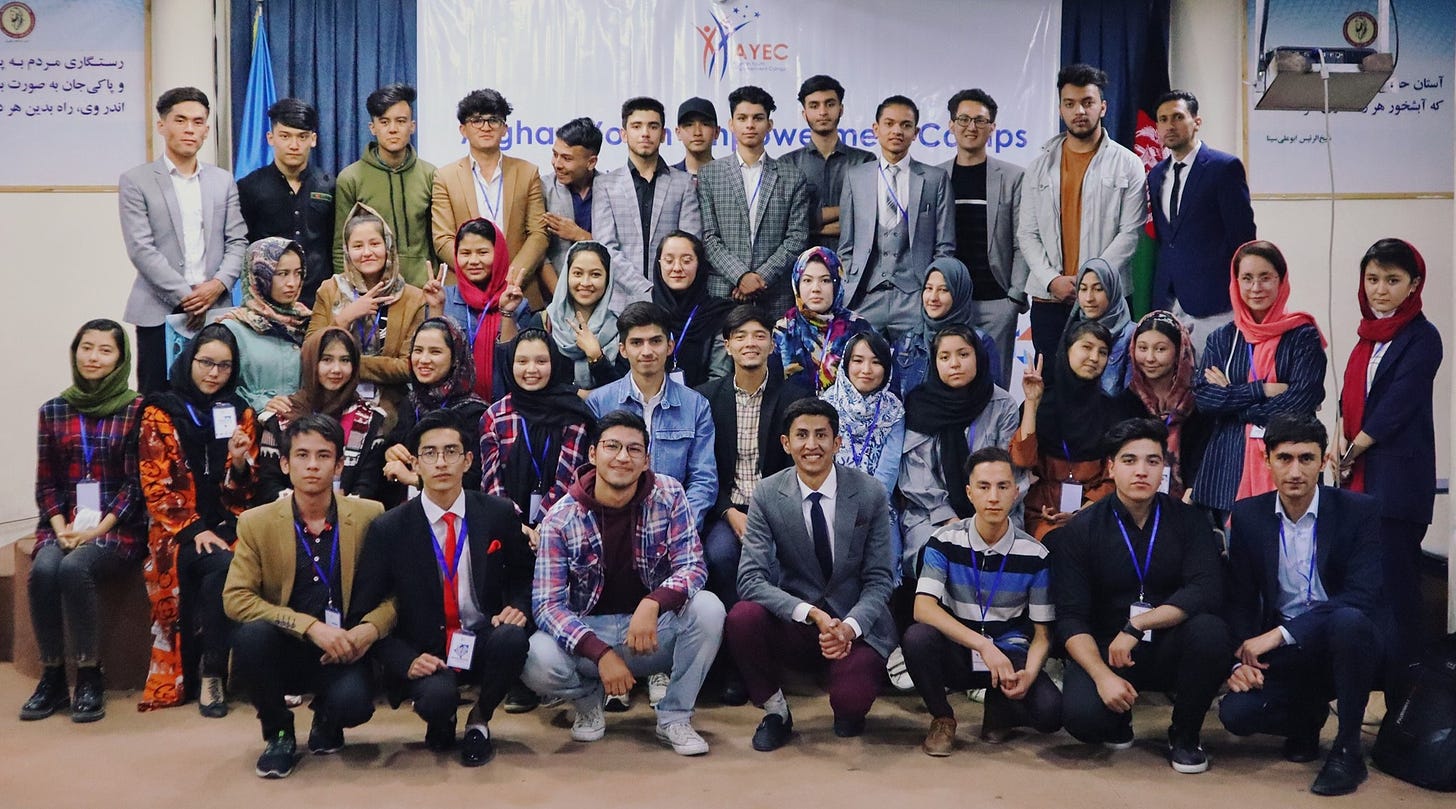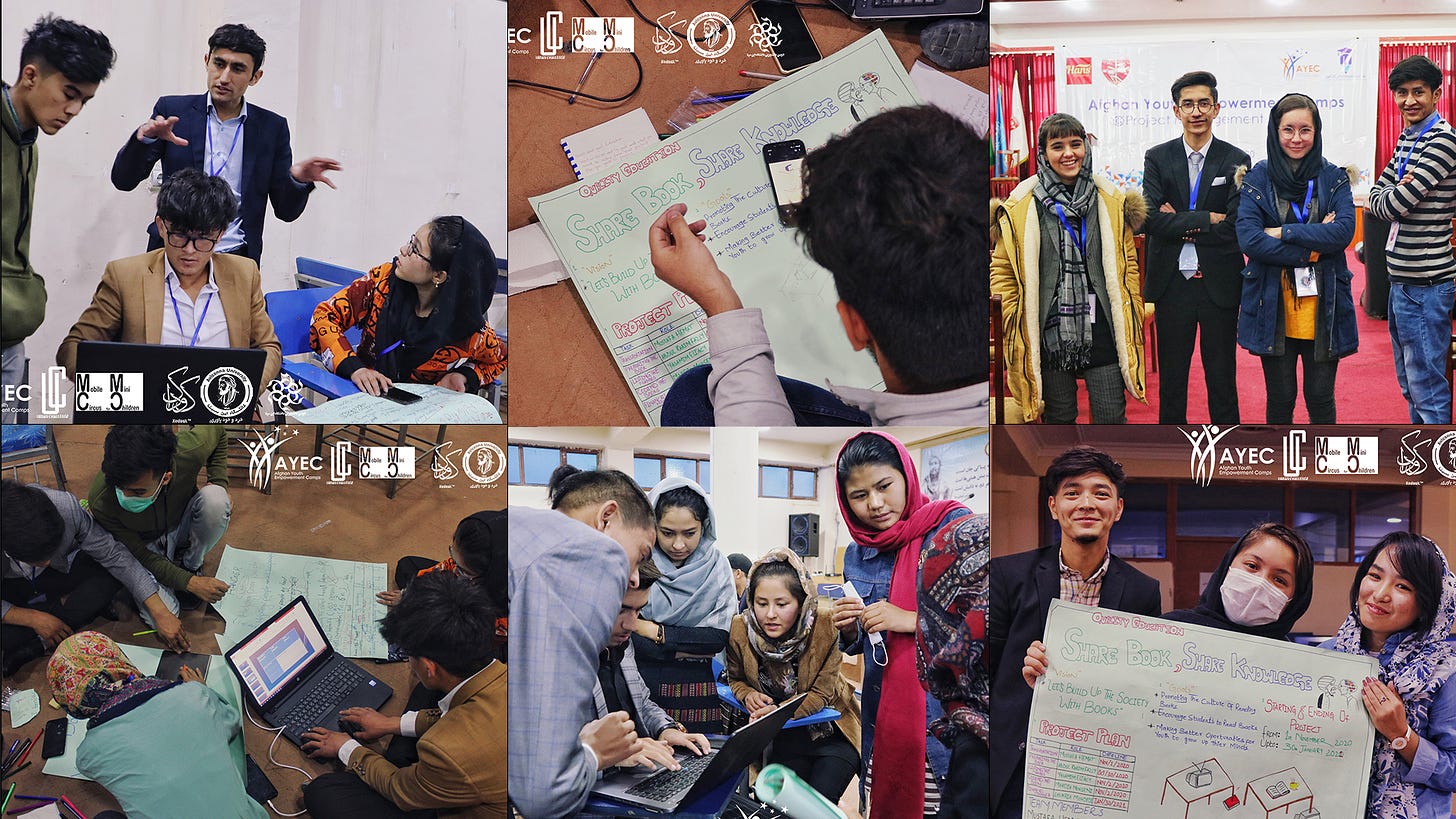Studying to Escape: English Lessons in Afghanistan
Elham is teaching English to Afghan women because it might just help them find a way out
Dread hangs over households in Afghanistan, where women live in fear of the next Taliban edict. Hope dwindles with each new announcement as female freedoms are torn away, and fresh restrictions force them further from public life. But even as the doors slam shut, there are glimmers of opportunity and people willing to risk all for the prospect of a better life.
For most, this means finding a way to escape Afghanistan and the tightening grip of Taliban rule. Already, women have been shut out of education beyond primary school, barred from most jobs and banned from many public spaces. “The Taliban keeps coming up with even more terrible rulings. Families are imprisoned in their houses. People have lost hope,” says Elham*, 27, co-founder of the Afghan Youth Empowerment (AYEC) Organization which works to enhance the capacity of Afghan youth through empowerment programs, including camps, training and workshops.
When the Taliban seized power in August 2021, AYEC moved its work online and explored the best way to help others leave the country. They decided on English lessons, hiring teachers to take students through a rigorous language program. “Lack of English proficiency is a big barrier for Afghan women and girls. This will help them to get out and access opportunities in the future,” Soofizada says.
He was among those that managed to escape during the chaotic withdrawal of US troops from Afghanistan. As the Taliban tightened their grip on the country, he secured a scholarship to complete a master’s in Italy, but his family stayed behind. “I am very worried about them,” he says. “When the government collapsed, we lost our hope for the future, our freedom, and our jobs. But I was fortunate, I had worked with some international NGOs who helped me to get out of the country.”
The journey out of Afghanistan was fraught with danger. “We survived the suicide attack in the airport, which was not far more than 50m from us, and we witnessed the loss of hundreds of our compatriots. It was a terrible experience,” he recalls. But he made it to safety, reaching Italy in late August and securing a place at the University of Padova to study for a Master’s degree.
Soofizada uses the small stipend he received for his studies to support his family back in Afghanistan, but economic hardship is just part of the struggle for Afghans living under Taliban rule. Life in the new Afghanistan is relentlessly restrictive, and the days pass slowly, especially for women and youth confined to their homes. “They lost all their human rights, they are not allowed to make decisions about anything,” Soofizada says.
Progress in Afghanistan’s education sector, and an improvement in female freedoms over the past two decades, have sharpened the pain now that those rights have been taken away. “In the past 20 years, we were developing, we had the basic fundamental rights, no one ever expected this to happen,” he adds. “Now all people think about is getting out of the country, but that gets harder the longer the Taliban stays in power.”
AYEC launched English for Afghan Women in September 2022 to provide a three-month online learning program designed to improve Afghan girls’ English proficiency from elementary to intermediate level. So far, the organization has supported 40 students between 16 and 22, all of whom have been shut out of school since the Taliban took control. “Now they are able to communicate better in English. This is going to open the doors for new academic and employment opportunities for them,” he says.
An Innovation Hub grant from Ideas Beyond Borders has helped cover teacher salaries and internet expenses, providing funding from the start to get the project off the ground. “Education will always be a path to freedom, and Ideas Beyond Borders will always support those who create access to knowledge and give people hope in the darkest times,” says Faisal al Mutar, President of Ideas Beyond Borders.
The first cohort of students has already seen a marked improvement in their English proficiency and is eagerly awaiting the next course of lessons. “Afghan youth are usually very interested in learning English because it opens the door to opportunities,” Elham says. “There is nothing here in Afghanistan for us now, so we have to go abroad and search elsewhere for the lives we want to lead.”
*Ideas Beyond Borders uses pseudonyms in coverage of Afghan partners to protect their security








